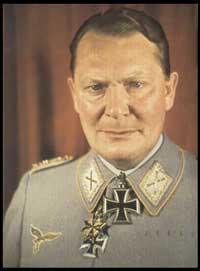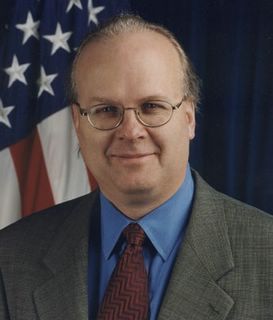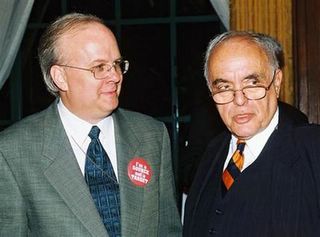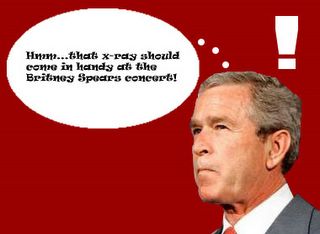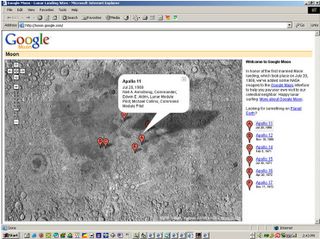
NY Times:
Gen. William C. Westmoreland, who commanded the United States forces in Vietnam from 1964 to 1968, overseeing the vast troop buildup and the height of the fighting, died last night in a retirement home in Charleston, S.C., his son, James Ripley Westmoreland, announced. The general was 91.
It doesn't give me any pleasure being the critic of a man who just passed away. I know that William Westmoreland had a family and was loved by many. And I know he had a job to do. That we all have to do a job, however, doesn't mean we can't use discretion in choosing the jobs we do, or how we do those jobs. Under the circumstances, I think this is a good time to evaluate Westmoreland's views on Vietnam against the hard light of hindsight, and in the view of current events in Iraq.
Westmoreland always argued that the United States "did not fulfill its commitment to South Vietnam." From the same
NY Times article:
In his memoirs, General Westmoreland blamed the outcome on the South Vietnamese Army and on President Johnson's refusal to broaden the war into Laos, Cambodia and North Vietnam. The general contended that in Vietnam the American forces' record of "achievements was remarkable: the mammoth logistical buildup, various tactical expedients and innovations, the advisory effort, civic action programs."
Wow! I wish the NY Times would have straightened out some of those gross euphemisms!:
"Mammoth logistical buildup." Translation? The United States dropped more bombs on Vietnam than it dropped over Europe in WWII. Millions of Vietnamese were annihilated. Today, Vietnamese citizens continue to be killed and maimed from unexploded bombs and mines.
"Tactical expedients and innovations." Would this include village massacres?
"The advisory effort." Translation: Teaching the South Vietnamese to live under a US handpicked puppet regime while using torture and assassination to crush dissent.
"Civic action programs." Translation: Torching fields and homes, moving rural populations into controlled villages where they were policed by armed members of their own population. Collaborators with "communists" (aka, national revolutionaries) would meet the same fate as other red gooks.
Pulitzer-prize winning historian Stanley Karnow, author of
Vietnam: A History, was interviewed on NPR's
Morning Edition today:
General Westmoreland was contributing to what we call the credibility gap by making greatly optimistic statements at a time when the situation was dreadful. And he kept using phrases like "we see the light at the end of the tunnel," and "victory's just around the corner," just as the war went on endlessly without any sign of progress."
If only we could have bombed a million more Vietnamese into oblivion. Sound familiar? Just a few weeks ago, Dick Cheney said the insurgency in Iraq was in its
"last throes." Just after that remark, the insurgency picked up. The last month has been one of the deadliest on record.
On Westmoreland's criticism of TV journalists embedded with troops, Karnow said:
Unfortunately he did not understand the nature of the war, and of course he lashed out and tried to find reasons why we lost and why we couldn't make any progress. He had to attack - he attacked television as if the television cameras made a difference. ... If there weren't any television cameras in Vietnam - if there wasn't [sic] any reporters in Vietnam, the situation wouldn't have changed. The Vietnamese communists were not fighting the war on the nightly news.
Westmoreland also held to the bizarre belief that the United States had stanched communism in the larger Southeast Asia region. Nothing could be farther from the truth. One only needs to look to Cambodia, where the United States armed and financially-supported
Pol Pot. This led directly to the blowback of Pol Pot's plan to return Cambodia to the Stone Age by torturing and murdering over a million Cambodians in forced agricultural labor camps.
I hold in the highest regard the soldiers who served in the Vietnam War. They deserve the highest respect. Unfortunately, people like Karl Rove (spreading rumors about John McCain's sanity) and Vietnam Veterans for
Truth Lies, are just as guilty as anyone of desecrating the sacrifice of American soldiers in Vietnam. Respect for the service of Vietnam veterans doesn't have to mean, however, that we can't disagree about the rationale for why the United States was in Vietnam, and what the goals were. The Vietnamese wanted our help. Ho Chi Minh believed the United States would help him liberate his country from its French colonial oppressors.
In his
letter to the editor of the NY Times, printed on May 2, 2005, Seymour Topping laid out the history that led the U.S. to the wrong side of justice (which the United States continued to repeat in other countries thereafter):
In 1945, President Harry S. Truman abandoned President Franklin D. Roosevelt's proposal for transformation of Indochina into a United Nations trusteeship and yielded to Charles de Gaulle's demands for assistance in restoring French control of the colony in return for cooperation in Europe.
As described in Robert S. McNamara's book "Argument Without End," "This was how U.S. involvement with Vietnam began: absentmindedly, almost as a kind of 'throwaway' in a grand bargain for the heart of Europe, to appease its defeated, temperamental and proud French ally."
Truman never replied to at least eight appeals by Ho Chi Minh for American support of independence and cooperation on the Philippine model. Ho was then compelled to turn to Beijing and Moscow for material aid against returning French troops.
The disastrous, extremist policies ... came into effect mainly after Ho Chi Minh's death in 1969 with the ascendancy of the Communist hard-liner Le Duan. As Vietnamese war veterans told me when I toured their country in March, the self-sacrificing motivation of North Vietnamese and Vietcong fighters, who suffered 900,000 killed, was not support of any ideology or government but simply determination to rid the country of foreign invaders, as with the Chinese and the French.
It was this human force that defeated American might and the dependent South Vietnam regime.
With a few exceptions, the United States has done more to frustrate democracy around the world rather than help. The United States could have pursued a different path in Korea, Vietnam, Cuba, Nicaragua, Iran, the Phillipines, etc., supporting liberation from dictatorships and self-determination first, then focusing on constitutional government and democratic institutions. Furthermore, people need to stop thinking that change must be instantaneous. The United States needs to give countries room to form their own expressions of self rule. Unfortunately, this is precisely the problem. It isn't so much that countries are "communist" that causes them problems in their relations with the United States. It's that they're so bold as to demand
independence from the stranglehold of the United States economy and multinational corporations.
As long as the United States supports despotic dictatorships and authoritarian puppet regimes, it will be on the wrong side of the people, and on the wrong side of history.
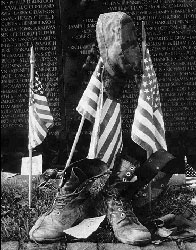 Resources:
Resources:Stanley Karnow has a condensed view of the Vietnam War in this
Salon article debunking revisionists who think the United States could have won the war if it had stayed the course and kept on bombing and killing villagers.
Karnow has a profile of Ho Chi Minh in this
Time magazine
article, and there are some letters by Ho Chi Minh
here, including one he wrote to President Truman in 1945.
A brief review of Karnow's volume on Vietnam, as well as other scholarship, can be found in this
page by Charles Gaskill from Pacific University.
There's a timeline of the Vietnam War in this
BBC guide, or check out the more detailed year by year timeline at
The History Place.
A more in-depth blow by blow history of the Vietnam War can be found in this Vincent Demma
chapter to a volume of military history.
The Smithsonian
Vietnam Veterans' Memorial is a volume with photographs of the monument and more history on the Vietnam War.
A nice presentation on the lessons of Vietnam War can be found in this
essay by Edward Herman.





